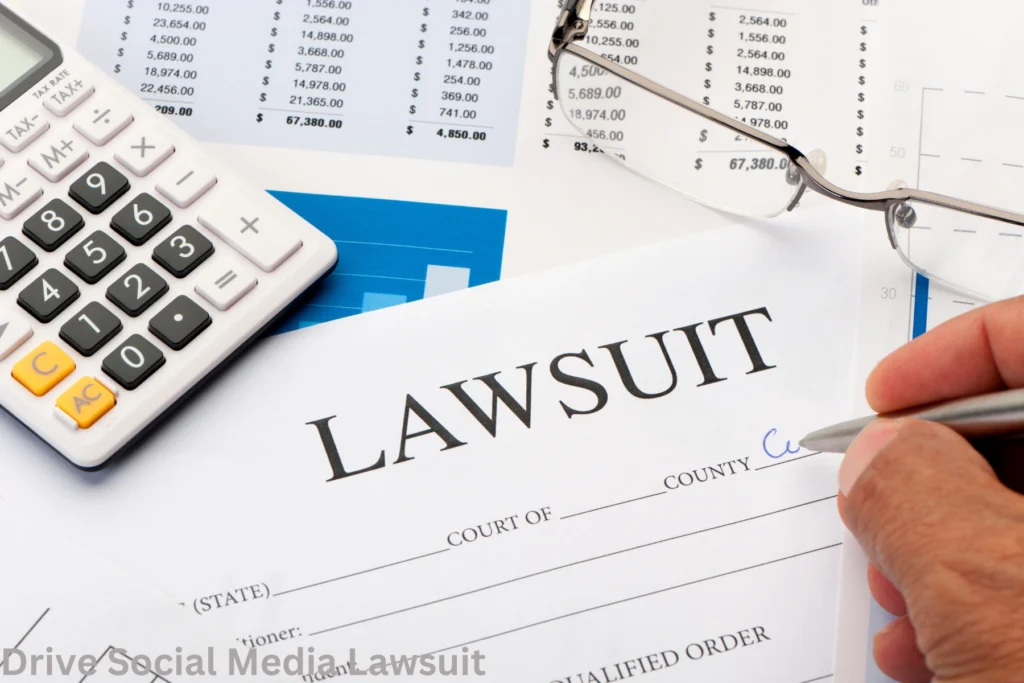Drive Social Media Lawsuit: Learning about the Legal Issues in the New World of Technology

With the rise of new technology in communication processes social media plays a critical role in businesses, people’s lives, and organizations. As seen, Facebook, Twitter, Instagram, and LinkedIn among others have brought communication and sharing of information to an entirely new level since millions of users can be reached in a single interface. Nonetheless, social media has been also accompanied by several legal issues. The term ‘drive social media lawsuit’ means an increase in legal concerns between social media, its users, and social content posted on such platforms. This paper aims to first investigate the different ways through which Drive Social Media Lawsuit may be approached, secondly, understand the causes of the rise in social media lawsuits, and thirdly the consequences that may arise from this.
The Rise of Drive Social Media Lawsuits
Litigation involving social media has also been on the rise in recent past due to the rising cases of people and companies participation on social media platforms. Such lawsuits can occur in different circumstances such as defamation, copyright infringement, privacy rights violations, and terms of service agreements. Social media presents an environment favorable for the emergence of legal issues because information is spread in such a haphazard and reckless manner.
No doubt social media lawsuits are increasing day by day and one of the main causes of the same is the large amount of content being uploaded on the Internet daily. Hence every day millions of posts, tweets, images, and videos pour in, increasing the chances of content that might lead to legal action. Also, social media applications operate on an international level and as such, content may go viral, and put more emphasis on jurisdiction thus making legal issues more complicated.
The following are the common types of drive social media lawsuits
Defamation: Defamation has become one of the widely used cases of social media litigation. When one gives out information to the public that is not true and which demeans another person’s character or that of an organization then that is defamation. Whereas, the libelous statement on the social media platform is very sensitive because the information is shared with many persons in the shortest time possible thus causing much harm. It can therefore be seen that defamation has been evidenced across the celebrity bracket, the business community, and even the general population through social media posts.
Copyright Infringement: Pursuit to Web 02 Pursuit to Copyright infringement is another common concern that forms a subject of litigation in social media cases. Copyright holders are violated because users upload images, videos, audio, and other content without having permission. Such a violation of a person’s copyright can result in legal consequences. Even the owners of social media platforms themselves have also been sued for negligence in deleting such infringing content.
Privacy Violations: Social media involves the gathering of very many users’ data from the users and this vice has led to a lot of concerns over the privacy of the users. It should be noted that most of the cases dealing with violation of privacy comprise cases of violation of privacy by using, disclosing, or collecting private information, data leakage, and third-party use of personal data. Any of these cases can attract hefty fines for the social media firms and bring reputational losses to the companies.
Breach of Terms of Service: Different social media platforms have policies, most commonly referred to as terms of service, which must be undergone by the users. Non-compliance to these terms may result in litigation. Cherry-picking and misrepresentation or other prohibited conduct of the business may also result in litigation.
Employment-Related Lawsuits: Social networking sites have brought professional and personal lives closer putting employees at risk of being involved in employment-related litigations. Some of the employees have been dismissed or suspended through social media activities hence resulting in wrongful dismissal cases. Also, employers have been sued for spying on the employees’ social media usage and interactions without permission.
Many users of social networks should also know some legal factors aqui.
Since the flow of cases based on the different social media platforms is still increasing, then users must have some basic knowledge of the legal issues revolving around the different social media accounts. In general, there are a few important legal topics to be aware of no matter whether you happen to be the average citizen, posting pictures of your cat, or a large business that utilizes social networks as a marketing tool.
- Think Before You Post: In fact, one of the vital rules of social media is, ‘Do not post anything that you wouldn’t want your boss to read’. If anything gets posted online, then there is no easy way to delete it and in a few moments, it can spread throughout the news feed. Be careful with the legal consequences of your posts especially for issues that are; contentious, information from other sources or individuals, and personal data.
- Understand Copyright Laws: As people share content on social services it is important to be aware of the legal issues regarding copyright laws. It is also important to note that when an individual or organization has not obtained the copyrights to the material, they are using then legal action may be undertaken against them. Hence, remember if you are at all unclear whether or not you are allowed to use some content, it’s probably best to ask the copyright holder or use royalty-free content.
- Respect Privacy: On social media, it is crucial to have protection of privacy. Be careful not to post other people’s information without their permission as well as avoid revealing too much about yourself. However, if you are a business then please make sure that you are not violating any data protection regulation set by the government and your privacy policy should be fully understandable.
- Adhere to Platform Rules: As it has been mentioned every social site has its policy or rule that should not be violated. Such actions are against the policies upheld by platform providers and may lead to the cancellation of your account, a or ban on its usage, and at the same time attract legal consequences. Be careful about the social networks you use and try to follow the rules of the particular network and try not to violate them.
- Monitor Your Online Presence: It also makes sense to be consistent in manually scanning your online image to determine possible legal concerns that emerged at some stage. There are always social media metering tools where you can try to monitor the mentioning of your name or brand and never wait to reply to any negative post or complaint. If you find something libelous, violating your copyright, or any other legal matter please advise a lawyer.
The Role of Legal Professionals in Drive Social Media Lawsuits

Thus, specializing lawyers is important and useful in such cases as recognizing social media lawsuits can indeed be difficult. Social media lawyers may be the right professionals who can help people and companies solve problems that emerge with the account of social networks.
- Defamation and Reputation Management: Lawyers can help in the filing of the slander or libel suit or the defense of one. It also assists clients with reputation issues by informing them on how to deal with negative content and the consequences that are associated with such content.
- Intellectual Property Protection: This category of professionals offers legal advice to clients about their copyrighted work or where to seek justice in case of violations by other parties. It can also share information about license schemes and how to properly utilize other people’s material.
- Privacy and Data Protection: Privacy lawyers are also able to help companies follow the rules of data protection and act in the case of a data leak. They can also advocate for individuals or companies that have been violated on issues to do with privacy by suing them.
- Employment Law: Legal consultants in the area of employment law can explain matters concerning the use of social media in the workplace. They can also educate employers on the proper way to set social media policies and even how best to monitor employees’ activities, and of course, they can defend their clients in employment law cases.
The Future of Drive Social Media Lawsuits
Overall it is evident that social media is still in its phase of development and therefore the laws surrounding social media are also under development. Several trends are likely to shape the future of social media lawsuits:
Increased Regulation: This is because social media platforms are getting more regulated due to more attention that governments and regulatory bodies are giving to them. Developments in privacy laws, data protection legislation, and content regulation will lead to more legal proceedings, and thus increase the burden on social media platforms.
Artificial Intelligence and Content Moderation: With more and more reliance on AI by social media companies to filter the contents being uploaded, there is no doubt that legal implications of the same are going to be a major setback. Issues of precision, suspicions of prejudice, and the roles of the platforms as well as of potential Litigants will be the topics of future claims concerning AI.
Globalization and Jurisdictional Challenges: Social media makes lawsuits a difficult jurisdiction to handle because it is a global platform. With increasing reliance on international parties, we shall also be faced with questions regarding jurisdiction, the law that ought to be applied in a particular case, and enforcement of the decision made.
Evolving Standards for Online Speech: Freedom of speech has always been an issue that presents a conflict of interest between the users and perceived or potential offenders as well as the society in social media cases. Courts will take an important place in finding out the limits of the freedom of speech in social media.
Conclusion
Professionals and businesspeople nowadays have access to communicating and doing business like never before, yet it has also exposed society to new legal propositions. Drive social media lawsuits can be described as a version of the escalating number of legal actions associated with social media operations. From defamation and copyright infringement claims, and invasion of privacy, to wrongful termination and discrimination: social media-related lawsuits seem to be picking up pace. Such entities must understand and appreciate the legal forms and systems necessary to work through the online communication process by the users and businesses. Legal professionals will remain an active part in dealing with these issues to protect the interests of the clients in the progressively complex environment of social media platforms.
FAQs
- What is a drive social media lawsuit?
A drive social media lawsuit means the legal proceedings that have been occasioned by activities, posts, or content posted on the social media platform. Such proceedings may cover matters like defamation, copyright, privacy, and t&c to name but a few. Most of these lawsuits’ parties can be individuals, business entities, and social media platforms themselves.
- What are the usual causes of litigation of social media?
This is how the most common types of claims sound in social media lawsuits: defamation – false statements that cause damage to a person’s reputation; copyright – use of someone else’s work without permission; privacy – unauthorized disclosure of personal information; and terms of service violations – breach of terms set by the social network.
- Can a single post on social networks result in defamation charges?
Legal, a single post on a social media platform can bring about defamation especially if it is likely to seek to harm another person or entity. They also pointed their fingers at the adverse effect on people’s reputations when defamatory content is posted on social media since the community is large and the content may cause much damage before it is removed… The affected person may be forced to seek legal redress due to the damages caused by the contents.
- How can I safeguard myself from social media lawsuits?
To shield yourself from social media lawsuits, consistently think before you post, guaranteeing that your substance doesn’t slander, encroach on copyrights, or disregard security freedoms. Look into the terms of administration of the stages you use, regarding intellectual property regulations, and try not to share individual data without assent. Moreover, if you are a business, guarantee that your web-based entertainment exercises consent to promote information security guidelines.
- How would it be a good idea for me to respond if I’m confronting social media lawsuits?
If you’re confronting social media lawsuits, it’s essential to promptly look for legitimate exhortation. A legal counselor who works in virtual entertainment or web regulation can assist you with grasping your privileges and choices, give direction on the most proficient method to answer and address you in court if fundamental. They can likewise assist you with exploring the intricacies of purview, particularly if the claim includes parties from various nations.







